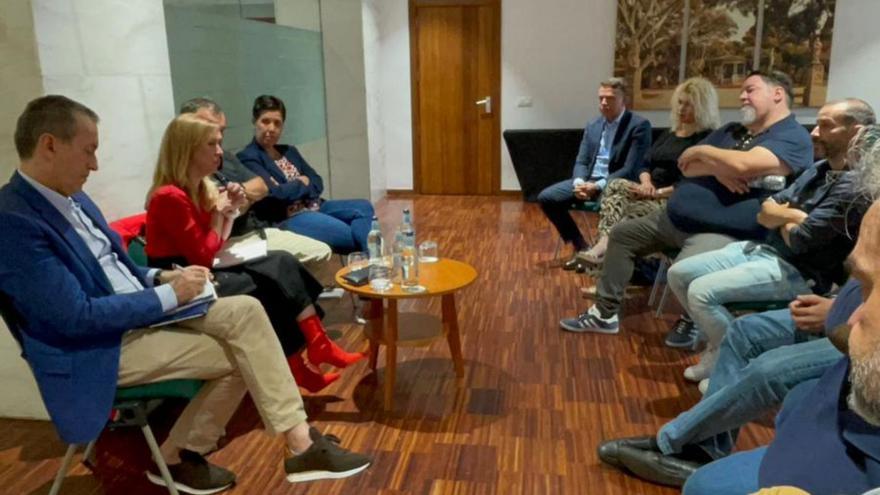
The candidate of Canarian Coalition in the elections to the council of Tenerife, Rosa Davilais committed to the development of the circular economy of recycling to “stop burying waste, create employment and have a more sustainable Island”. The nationalists consider that this industry can be an alternative to diversify the economy and avoid the current dependence on tourism as engine.
Dávila held a meeting yesterday with representatives of the waste managers in which she was accompanied by the members of her candidacy José Miguel Ruano, Blanca Pérez and Pedro Millán. She assured that “we do not want to burn or bury waste in the Tenerife Environmental Complex, in Arico, but to generate an economic activity linked to its use.” He added: “We want to develop the Tenerife Sustainability Pact and that entails a commitment to promote renewable energy and the circular economy.”
Regarding the meeting, he pointed out that “we have met with the sectors that promote the circular economy to learn about their demands and the role that the Cabildo has to develop.”
Rosa Dávila stressed that “industrial capacity in Tenerife is limited, but it is possible to move forward and we can do it hand in hand with companies that generate jobs linked to waste management.”
The candidate of DC he pointed: “We are a fragile, fragmented and remote territory. An industry would allow us to reduce foreign dependence, diversify economic activity and not have tourism as essential.
The nationalist program develops the Pact for the Sustainability of Tenerife, with specific plans for the green or blue economy and the empowerment of the composting industry.
The president of the Association of Waste Managers of Canary Islands (Agerkan), David gonzalezindicated that “We have the unique opportunity to develop a circular economy industry in the Archipelago, something that would be beneficial from an environmental point of view, but also economically and socially for the creation of so-called green jobs.” He pointed out that “our main difficulties come from the remoteness and fragmentation of the territory, but there are solutions from a legal point of view. We need to be in contact with the public administrations to agree on them”.















